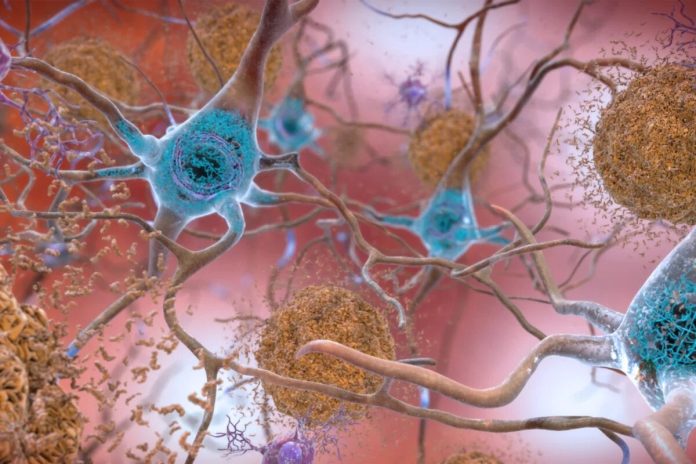A new study that identifies the cause of Alzheimer’s disease, dementia, and Parkinson’s disease as the breakdown in function of the tau protein in nerve cells and shows that a drug that is presently approved can reverse the memory loss associated with the diseases was reported in the edition of the journal Molecular Neurodegeneration. This is the first time that research has proven that the loss of tau protein function precedes the formation of beta-amyloid plaques in Alzheimer’s disease. Dr. Charbel Moussa, professor of neuroscience at Georgetown University Medical Center, and colleagues made the discovery.
Previously researchers thought that the accumulation of beta-amyloid plaques signaled the onset of nerve destruction from Alzheimer’s disease. There have been numerous reports of people that had an accumulation of beta-amyloid plaques but no memory malfunction. The researchers proved that tau protein malfunction and eventual loss of function precede the formation of beta-amyloid plaques.
Cell death is the result of the accumulation of nonfunctional tau protein and beta-amyloid plaques in the nerve cells. The introduction of functional tau protein into nerve cells that had a loss of tau protein restored the normal nerve function. The discovery explains why some people can have beta-amyloid plaques and suffer no memory loss or nerve damage.
A cancer drug called nilotinib was found to assist in the restoration of nerve function in cells that had some tau protein in them. If sufficient tau protein exists then the drug can reverse the effects of the previous loss of tau protein that is now confirmed to signal the onset of Alzheimer’s disease. The researchers are in the process of testing the preventative potential of nilotinib in Alzheimer’s, dementia, and Parkinson’s disease.








